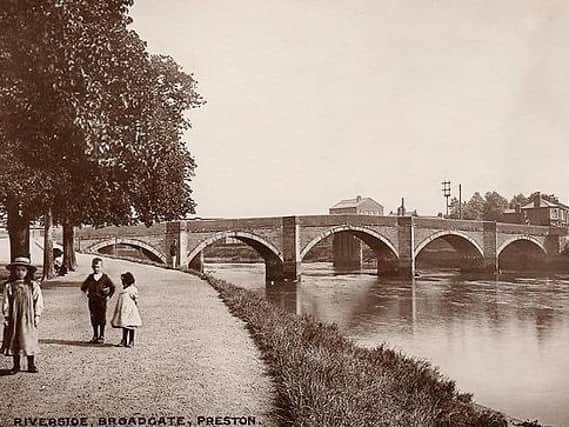Preston mother’s secret birth leads to tragic death of her baby


Shortly before 8 o’clock in the morning on the last Saturday of December 1882 Thomas Rooney, landlord of the Pork Market Tavern, on Radcliffe Street, was out walking along Broadgate when he saw a parcel lying on the ground between the river and the footpath.
He called the attention of P.C. McLean who was on patrol in the area and when they opened the parcel they discovered the body of a newly born child.
Advertisement
Hide AdAdvertisement
Hide AdInvestigations by Det. Insp. Brown led him to Ribble Place, Broadgate and the home of Charles James Uttley. In the Uttley household were employed a domestic servant named Ellen
Crombrie and a young nursemaid called Annie Maria Curtis. There had been rumours that Miss Curtis had been with child and when the detective confronted her she admitted she had been delivered of a child. He immediately took her to the police station. And she was charged with concealment of birth, but made no reply.
Two weeks later at the Preston Police Court her housemate Ellen Combrie was the first to testify. She stated that about two months earlier she had suspected that the prisoner was pregnant and that on the evening of Christmas Day she had complained of stomach ache and gone to her room early.
During the night she heard Miss Curtis fall on her bedroom floor rushing to her aid as she fainted. When she recovered from her ordeal she insisted that she go back to her bed. On Boxing Day morning she was clearly in a poorly state and with the family absent on vacation she remained in her room all day. Miss Combrie’s suspicions were later aroused when she noticed bloodstains on the chemise and nightdress of her companion. Although Miss Curtis never said anything about the child she suspected that she had suffered a miscarriage. The only time she had seen her leave the house since Christmas Day was on the Friday evening when she went out at 9 o’clock and returned a few minutes later.
Advertisement
Hide AdAdvertisement
Hide AdDr. Pilkington was called and he stated that he had examined the prisoner on her arrival at the police station and that her condition was consistent with having giving birth. The prisoner voluntarily telling him she had become ill on Christmas Day and given birth alone after midnight. Telling him the child was alive when delivered although she fainted almost immediately after the birth and when she awoke minutes later it was dead. His post mortem examination confirming that the female child had lived and simply died from a lack of proper care and attention.
It was clear that there had been no preparations for the birth of the child and it was clear she was torn between the need to admit her pregnant state and the disgrace she thought would be forthcoming. The magistrates chaired by Edmund Birley whilst wishing to be lenient felt duty bound to send her for trial at the next Lancaster Assizes, allowing bail set at £50.
It became clear at the Lancaster Assizes in mid January 1883, where she was charged with the secret disposal of a dead child, that there was no evidence of foul play from the mother towards the child. It was claimed on her behalf that rather than cast the child into the river where it would be unlikely to be found she had laid it besides the footpath, five feet above the natural water level, so that once discovered the child would have an appropriate burial.
The jury after careful considerations found her not guilty and His Lordship Mr. Justice Kay discharged her, saying he had the greatest possible pity and compassion for her. Telling her not dwell upon her ordeal for she had a long future ahead. The prisoner who had fainted twice in court, appeared to be deeply penitent. Her employer who had given her glowing reference in court told the girl that he was happy to employ her again at his Broadgate home.